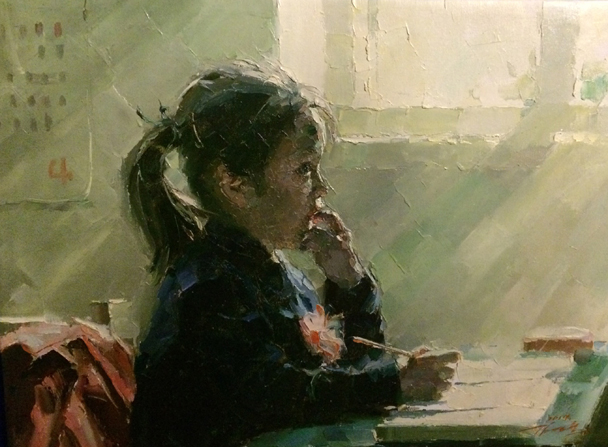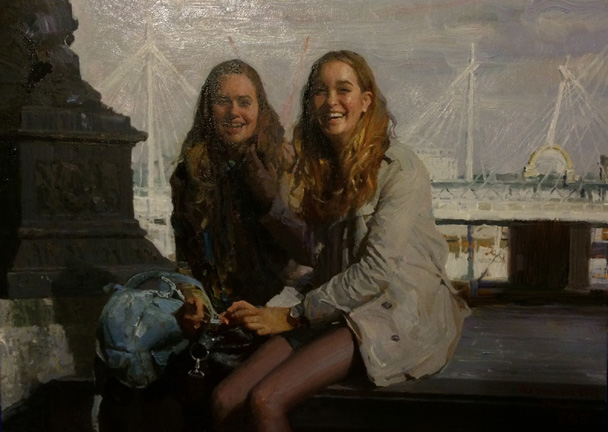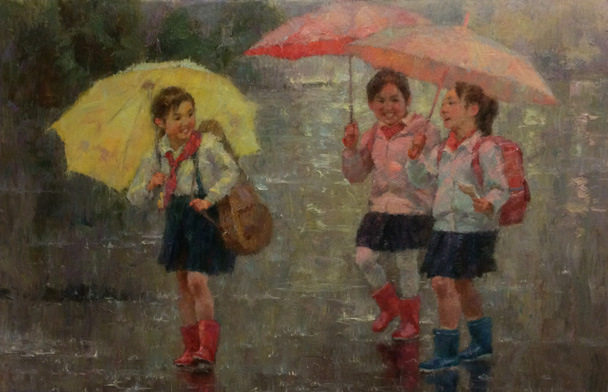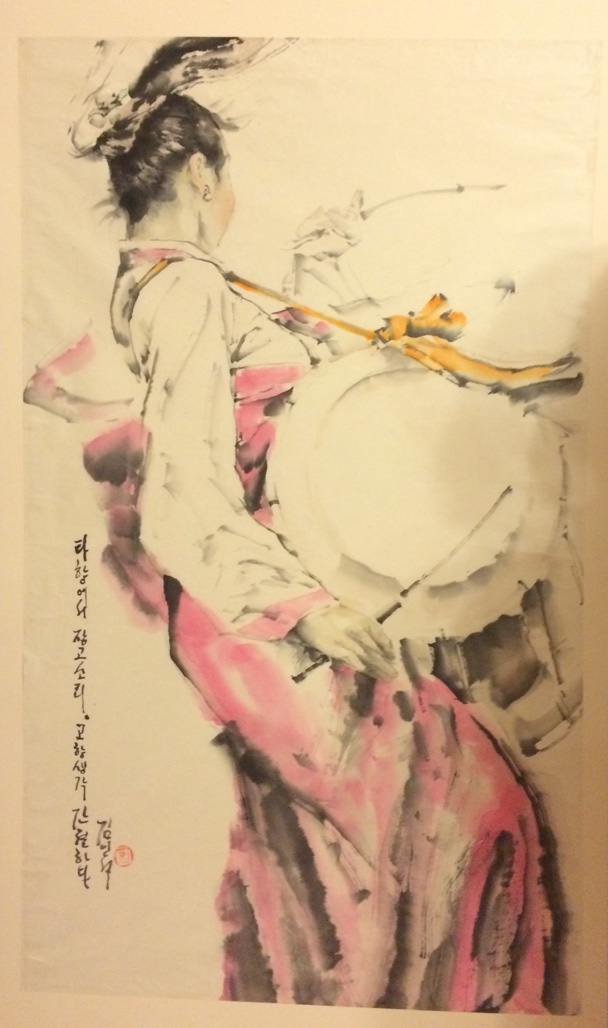 |
 |
|
|
 |
 |
 |
|
|
|
Prol Shop
Prol TV
Prol Radio
Lalkar
Red Youth
Photos
|
 |
 |
|
|
 |
 |
 |
 |

| >>back to Proletarian index |
>>view printer-friendly version |
 |
 |
| Proletarian issue 63 (December 2014) |
 |
| Art exhibition introduces socialist Korea to a British audience |
 |
| Groundbreaking cultural exchange gives Londoners a glimpse of the real Korea that is missing from imperialist news media. |
 |
 |
 |
During the first week of November, the London embassy of the Democratic People’s Republic of Korea (DPRK) opened its doors to host an exhibition of work by a selection of the socialist country’s leading artists.
The works by Jon Pyong Jin, Kim Hun, Ho Jae Song and Hong Song Il and others embodied a large number of themes and embraced a wide variety of styles, covering the life and work of the Korean people, their traditional culture, as well as the country’s scenery and wildlife.

Not only were the four main featured artists on hand throughout the week to explain their work, answer questions and exchange ideas with the many thousands of visitors to the exhibition, but for the previous two weeks they had been moving around London, painting what they saw, so scenes of Korea and London alike hung side by side on the embassy walls. They included depictions of the South Bank, Tower of London, Trafalgar Square and Covent Garden.

The Daily Telegraph commented: “The lovingly-rendered London scenes would not be out of place in any up-market gallery.” (‘Inside North Korea: How Kim Jong Un’s favoured artists view London’, by Harriet Alexander, 3 November 2014)

Throughout the days of the exhibition, the embassy was thronged with people. Several thousand viewed the show. And, whilst many might have been motivated to visit by simple curiosity, very few would have left unimpressed, both by the quality of the art on display and by the open and friendly welcome they received from Korean artists and diplomats.
The exhibition also drew substantial media coverage, including from BBC and ITN television.
David Heather, who curated the show, told the BBC that he hoped it would lead to more cultural exchanges between the two countries: “What I’m planning is that we now take a group of artists from Britain to the DPRK. I’m hoping that artists who think they have something to offer will contact me. I would love to see British artists going to Pyongyang and painting what they find there and exhibiting there too.” (‘North Korean UK embassy hosts first art exhibition’ by Vincent Dowd, BBC News Online, 4 November 2014)
All the artists featured in the exhibition work at the Mansudae art studio in the Korean capital Pyongyang. Founded in 1959 as the country’s main fine arts centre, more than 700 artists are based there, free to develop their creative talents, with their salaries and livelihoods guaranteed by the state, like all other working people in socialist Korea.
The incredible levels of skill and technique displayed in many of the works on display is a testament to what artists can achieve when they are freed up in this way. Even the most successful artists in the capitalist world today spend only a tiny proportion of their time practising or perfecting their technique or creating new works. Far more of their time must be spent in self-promotion, and in trying to find commercially-viable ‘niches’ that might enable them to earn a sustainable living. Such niches are rarely as artistically challenging or fulfilling as the artists might have hoped.
Besides its fame at home, north Korea’s Mansudae studio enjoys a considerable international reputation. Its sculptures and public monuments proudly depict the anti-imperialist struggle for national liberation in a number of African countries, including Zimbabwe, Namibia and Senegal, for example.
The contrast between the attitudes to the arts and to cultural workers in socialist Korea and capitalist Britain may be seen from a recent report in the Evening Standard, which highlighted the concerns of some of Britain’s leading artistic personalities that tuition fees and student loans risk “killing Britain’s creative edge”. Musicians Brian Eno and Jarvis Cocker, artist Grayson Perry and Oscar-winning film director Steve McQueen were among those noting that going to art college had played a vital role in their lives, but fearing that today’s generation will lose that opportunity.
Brian Eno, who attended Colchester Institute’s art school before joining Roxy Music, said “he wouldn’t get into art school now”, adding: “Poor people won’t go to art school so much because they can’t pay the money.” (‘University fees “will kill off creative arts”’ by Louise Jury, 18 November 2014)
And whilst the visiting artists from the DPRK rightly wished to stress only friendship with Britain and the British people, Merited Artist Kim Hun could not but help but make this observation about the artefacts he saw on display at the British Museum:
“So many of them came from other countries, he observed, unlike north Korea where all the displays were indigenous. It made him think that these items must have been stolen from their country of origin and that gave him cause to wonder about Britain’s history and role in the world.” (‘North Korean art show in London avoids politics’ by Charles Scanlon, BBC News Online, 4 November 2014)
All in all, the exhibition did a great job in helping to break down the barrier of disinformation and lies, which is normally all that people in this and other imperialist countries hear about the DPRK. We look forward to seeing many more such initiatives in the future.

|
 |
| >>back to Proletarian index |
>>view printer-friendly version |
 |
 |
|
 |
|
 |
 |
 |

